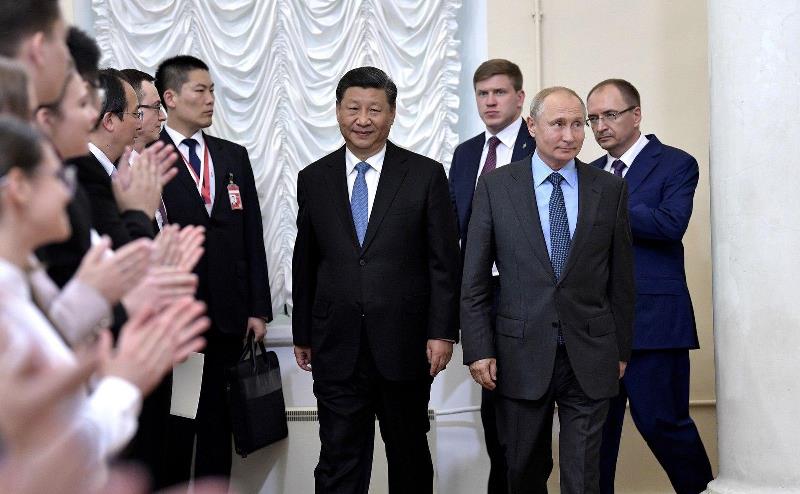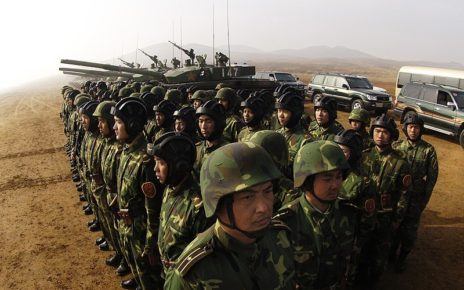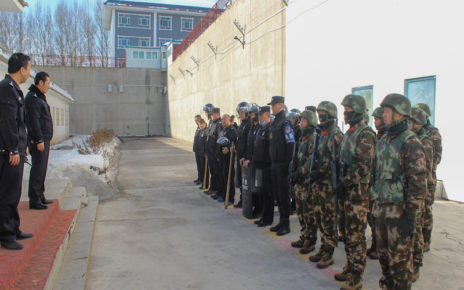Abstract: In this article, Research Analyst Andrew Erskine assesses how Chinese peacemaking attempts in Ukraine are dividing NATO members along West and East lines.
In NATO’s 2022 Strategic Concept, the alliance remarked for the first time on how China posed a “systemic challenge to Euro-Atlantic interests, security, and values.” The document further illustrated how Beijing seeks control of key technologies, critical infrastructure, and supply chains of strategic materials while highlighting China’s deepening partnership with Russia to upend the international rules-based order in their favour. The inclusion of China in NATO’s Strategic Concept indicated the Alliance’s pivot towards a cohesive perspective on addressing geosecurity challenges emerging from the aspiring hegemon from the Indo-Pacific.
The war in Ukraine has brought to the limelight intriguing intra-alliance dynamics, such as the growing divide between Eastern and Western European countries with regard to China and its role in European continental security. In November 2022, German Chancellor Olaf Scholz traveled to Beijing and met with President Xi Jinping to have a candid exchange on encouraging China to use its relationship with Russia to restrain Moscow from further offensives against Ukraine. In a similar approach, Spanish President Pedro Sanchez met with President Xi in March to discuss peacemaking opportunities, with both countries stressing that their countries should be respected as diplomatic interlocutors.
In April, French President Emmanuel Macron went to Beijing to meet President Xi to expand economic relations and hold discussions around peacemaking to the ongoing war. However, Macron failed to achieve any breakthrough in curbing Xi’s purchase of Russian oil and gas or shifting Beijing’s stance to support the return of all Ukrainian territory to Kyiv. Instead, Macron’s visit fuelled controversy when he indicated that Europe must avoid being drawn into any Sino-US conflict over Taiwan as France and Europe are not a “vassal” of American primacy.
Interestingly, these state visits demonstrate an increasingly Western European perspective of China as a key diplomatic collaborator for peacemaking. In contrast, Central and Eastern Europe (CEE) countries, which originally provided China with a gateway into European affairs, are becoming vocal skeptics of Beijing’s role in peace talks.
Polish Prime Minister Mateusz Morawiecki declared, “You need to support Ukraine if you want Taiwan to stay as it is…if Ukraine gets conquered, the next day, China can attack Taiwan.” Lithuania, for its part, has demanded the need for China to condemn Moscow’s invasion before Beijing can be considered a moderator of the conflict. Czech President Petr Pavel has also been vocal on China’s peacemaking role, stating that Beijing cannot be trusted to mediate peace because China is benefitting from the war through the purchasing of cheap Russian oil and gas as well as making the West weaker as it supplies Kyiv with weapons.
CEE countries have also argued that Beijing’s peacemaking roles as nothing more than an attempt to maintain China’s international reputation of being a responsible global power due to questions around President Xi’s twelve-point peace framework for Ukraine, Beijing’s “no limit” partnership with Russia, and Chinese companies expanding their purchases for sanctioned Russian oil and gas, along with reports of Beijing secretly providing weapons to Moscow.
With staunch differences regarding China’s peacemaking role, it is clear that there is a divide between Western and Eastern European NATO members. At the center of this divide is Beijing’s formidable ability to recognise and exploit weak points in regional dynamics that it uses to attain geopolitical objectives. In seeking to disrupt the West’s unity on Beijing’s diplomatic reach and opposition to Chinese peacemaking, Beijing has identified Paris, Berlin and Madrid’s anxiety about not getting incorporated into a US bloc system as specific stress points for transatlantic unity.
The West and East divide on China’s peacemaking role also results from shared memories of CEE countries having to bargain with an authoritarian and communist regime during the Cold War. CEE countries also discuss similarities between Russian revanchism of Eastern Europe with Chinese revisionism of the Indo-Pacific, specifically Beijing’s growing militaristic posture toward absorbing Taiwan.
With more pushback for its role in helping frame the next geosecurity architecture of Europe by CEE countries, Beijing is stoking the Old Europe versus New Europe narrative to maintain a diplomatic foothold. In particular, Beijing is catering to the traditional Paris-Berlin axis by underlining that regional peace should be driven by distinct continental interests and not about American strategic objectives that put US security interests at the cost of European allies.
Beijing is also attempting to establish itself as a stabilizing force in Europe’s long-term security. China’s recent role in brokering peace between Saudi Arabia and Iran has demonstrated that Beijing is an ample diplomatic stabilizer that can bring opposing parties together to better regional and global stability. However, these affirmations of Beijing’s peacemaking ability should not be seen as proof of China being a benign international power.
Instead, Chinese peacemaking should be observed as a gray-zone tactic in achieving critical Sino-centric strategic objectives. For instance, China’s peacemaking in the Middle East was rooted in Beijing’s strategic impulse to create a more stable region to promote its investments for regional development, secure energy supplies, and erode US diplomatic power.
In Europe, Chinese peacemaking is central to Beijing’s plans to create wedge issues among the Euro-Atlantic community on Sino-European dynamics. Understanding that the US seeks peace in Europe to fully focus on the Indo-Pacific and its growing competition with China, Beijing is readjusting its European strategy to help bring about a future European geosecurity order that is unbalanced along West and East lines. Central to this vision is the strategic autonomy of Western European countries that do not want to be under the shadow of US hegemony or lose their top-tier status as regional powers and chief architects of Europe’s geosecurity order.
By pursuing more peacemaking dialogues with Western European countries, Beijing will undoubtedly seek to make its presence as controversial as possible. In doing so, China can stoke more intra-alliance disorder among NATO members by wedging economic interests against pan-regional security concerns. By having CEE countries and the US showcasing their frustrations with Western European allies — citing concerns over Western European allies having their foreign policies clouded by economic interests — Paris-Berlin-Madrid will undoubtedly undervalue any criticism by highlighting the woes of being hemmed into a Cold War-like bloc system, citing the political, economic and civil damages they incur.
These back-and-forth discussions on West and East lines for Europe’s geosecurity architecture are a gift for China. With more resources, political energy, and American intervention in Europe, Beijing will be afforded more opportunities to achieve what it desires — hegemony over the Indo-Pacific.
Photo: “Xi Jinping Saint Petersburg State University visit June 2019” by Press Service of the President of the Russian Federation via Creative Commons licensed under CC BY-SA 4.0.
Disclaimer: Any views or opinions expressed in articles are solely those of the author and do not necessarily represent the views of the NATO Association of Canada.




